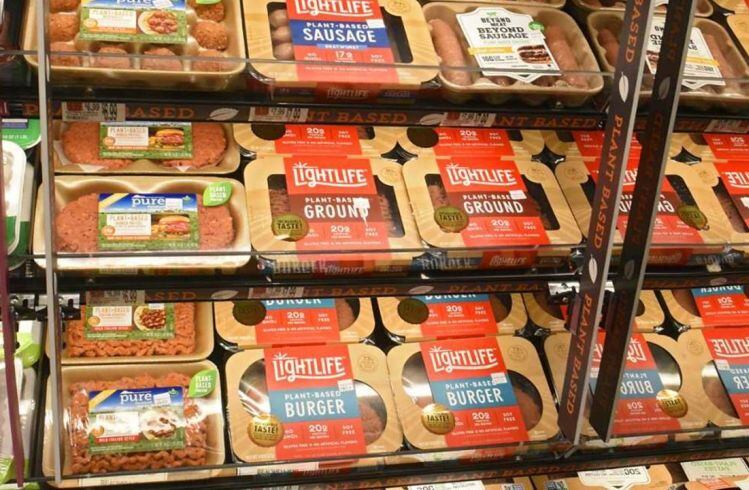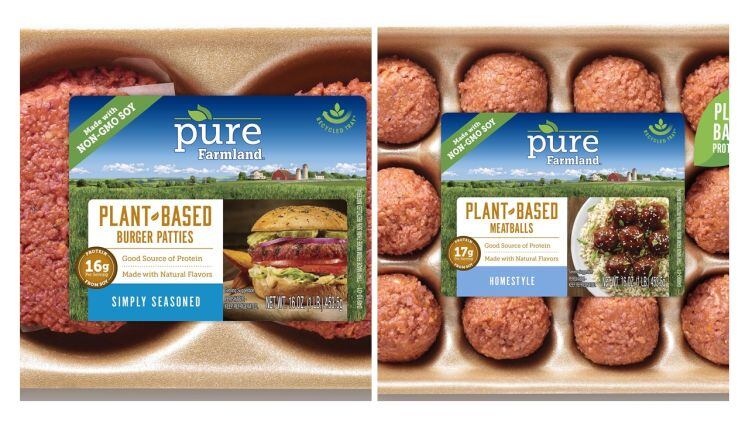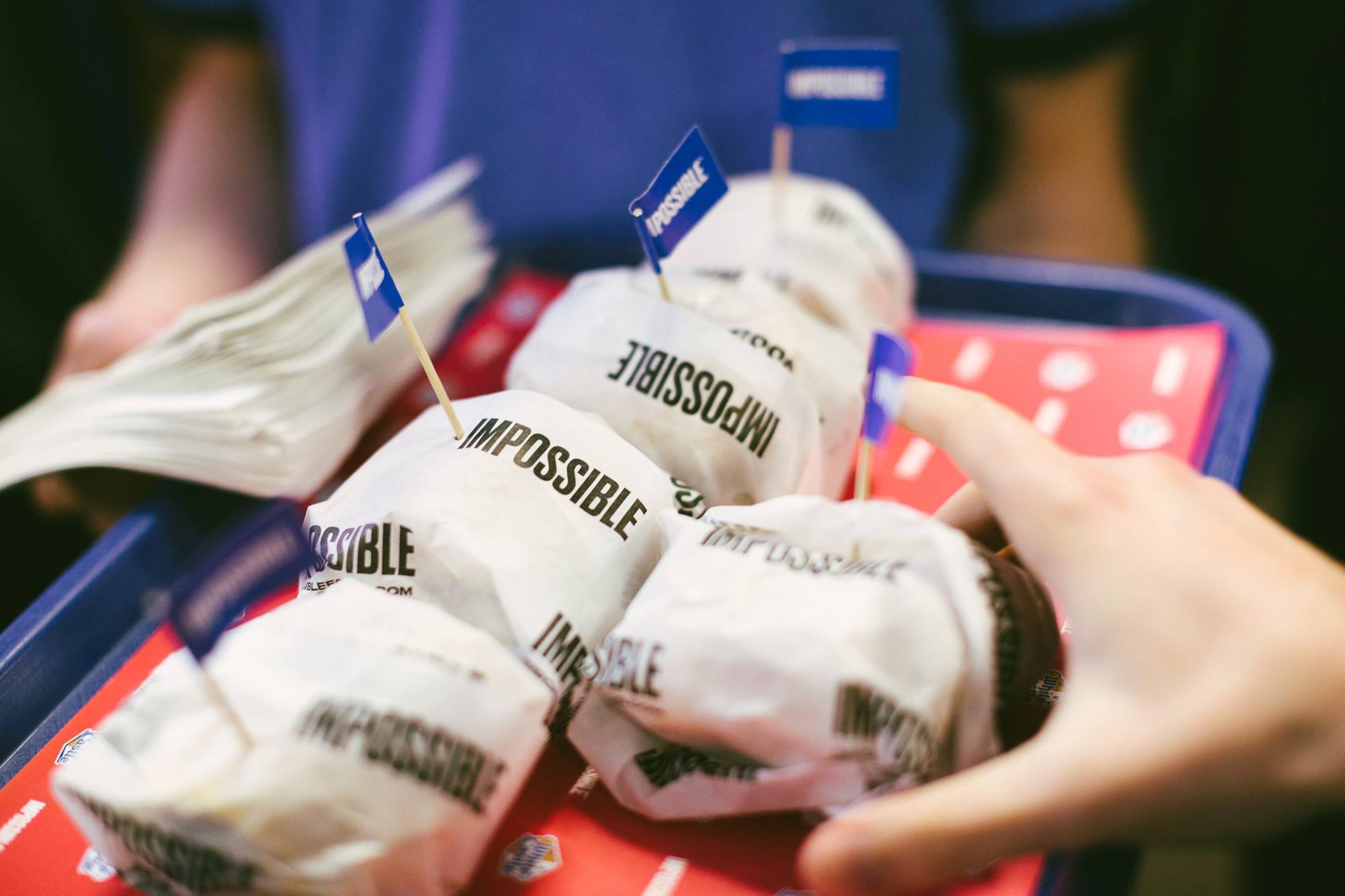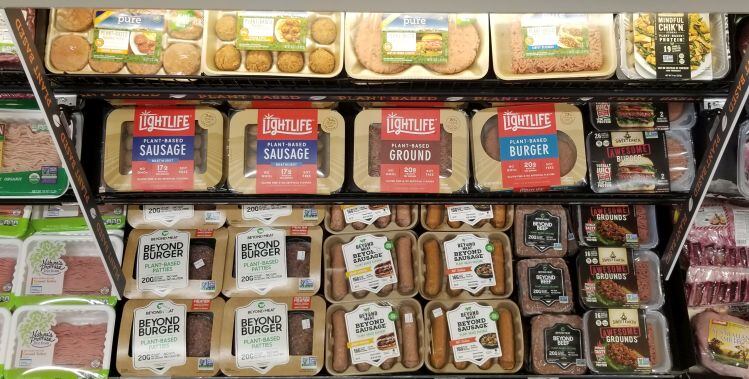Speaking to FoodNavigator-USA as Pure Farmland geared up to celebrate its first anniversary, brand manager Erin Thacker noted that all of the players in the set were constantly evolving and improving recipes (Nestlé’s Sweet Earth brand, for example, has just tweaked the recipe of its Awesome Burger, reducing the fiber content but increasing the meaty flavor and texture).
The latest iteration of the Pure Farmland burger – which has a base of soy protein, coconut oil and canola oil – has 16g protein (up from 14g) from non-GMO soy, 7g saturated fat (down from 13g), and 480mg sodium (down from 580mg), bringing it more closely in line with competitive products from a nutritional perspective, said Thacker, who said consumers can expect to see more advertising in the coming weeks as the refreshed products and packaging roll out.
‘We wanted the brand to have its own personality and identity in the marketplace’
She wouldn’t share any figures, but said Smithfield was "very pleased" with the performance of Pure Farmland, which was developed and manufactured in-house following extensive consumer research and testing, and has a more competitive price point weight for weight than Beyond Meat.
“We started looking at plant proteins about 2.5 years ago, but we’ve always thought of ourselves as a protein company,” said Thacker, “so it made sense to be in this set, we want to offer a variety of protein choices. We also have a broader range of products than some of our competitors.
"Overall we’re very pleased with our velocities and repeat rates across the portfolio; the meatballs and the breakfast items are doing really well.”
‘Approachable and non-judgmental’
While Impossible Foods is on a mission to displace animal agriculture on health, animal welfare and sustainability grounds, Pure Farmland – which is owned by one of the country’s largest meat processors (although it does not reference Smithfield in its packaging or website) – takes a different tack, emphasizing instead taste and choice, said Thacker.
“We wanted the brand to have its own personality and identity in the marketplace so our brand team could really create something from the ground up. We’re approachable and non-judgmental. It’s about offering a choice.”
- Pure Farmland Burger (4oz - latest version): 16g protein, 7g sat fat, 3g fiber, 430mg sodium, 220 calories. Key ingredient: Soy protein concentrate
- Nestlé’s Sweet Earth Awesome Burger (4oz - latest version): 25g protein, 8g sat fat, 2g fiber, 360mg sodium, 280 calories. Key ingredient: Textured pea protein
- Beyond Burger (4oz): 20g protein, 5g sat fat, 2g fiber, 350mg sodium, 260 calories. Key ingredient: Pea protein
- Impossible Burger (4oz): 19g protein, 8g sat fat, 3g fiber, 370mg sodium, 240 calories. Key ingredient: Soy protein concentrate
- McDonald’s Quarter Pounder 100% Beef Patty: 20g protein, 18g fat, 8g sat fat, 0g fiber, 190mg sodium, 240 calories. Key ingredient: Beef
Merchandising: ‘The key thing is having a destination for these products in the store’
Not surprisingly, Pure Farmland performs the best when it is merchandised with other plant-based products in a dedicated set in the store, whether that’s in refrigerated sets within the meat case, or in the frozen meat set, said Thacker.
“The key thing is having a destination for these products in the store and we’ve worked closely with retailers on things like instore signage and point of sale material so consumers know where to go to find them.”
As for who is buying Pure Farmland products, basket analysis suggests the core audience is flexitarians - people that eat meat, but are open to including plant-based products into their repertoire – said Thacker, who noted that the brand had had positive feedback from young men in focus groups.





